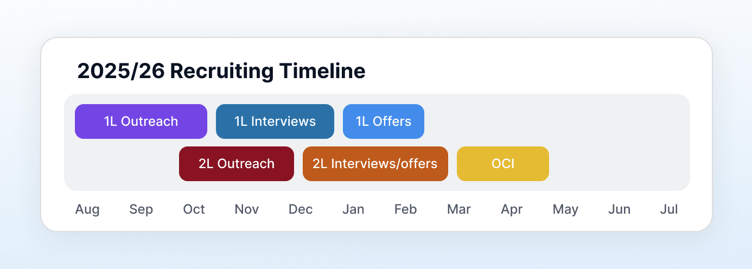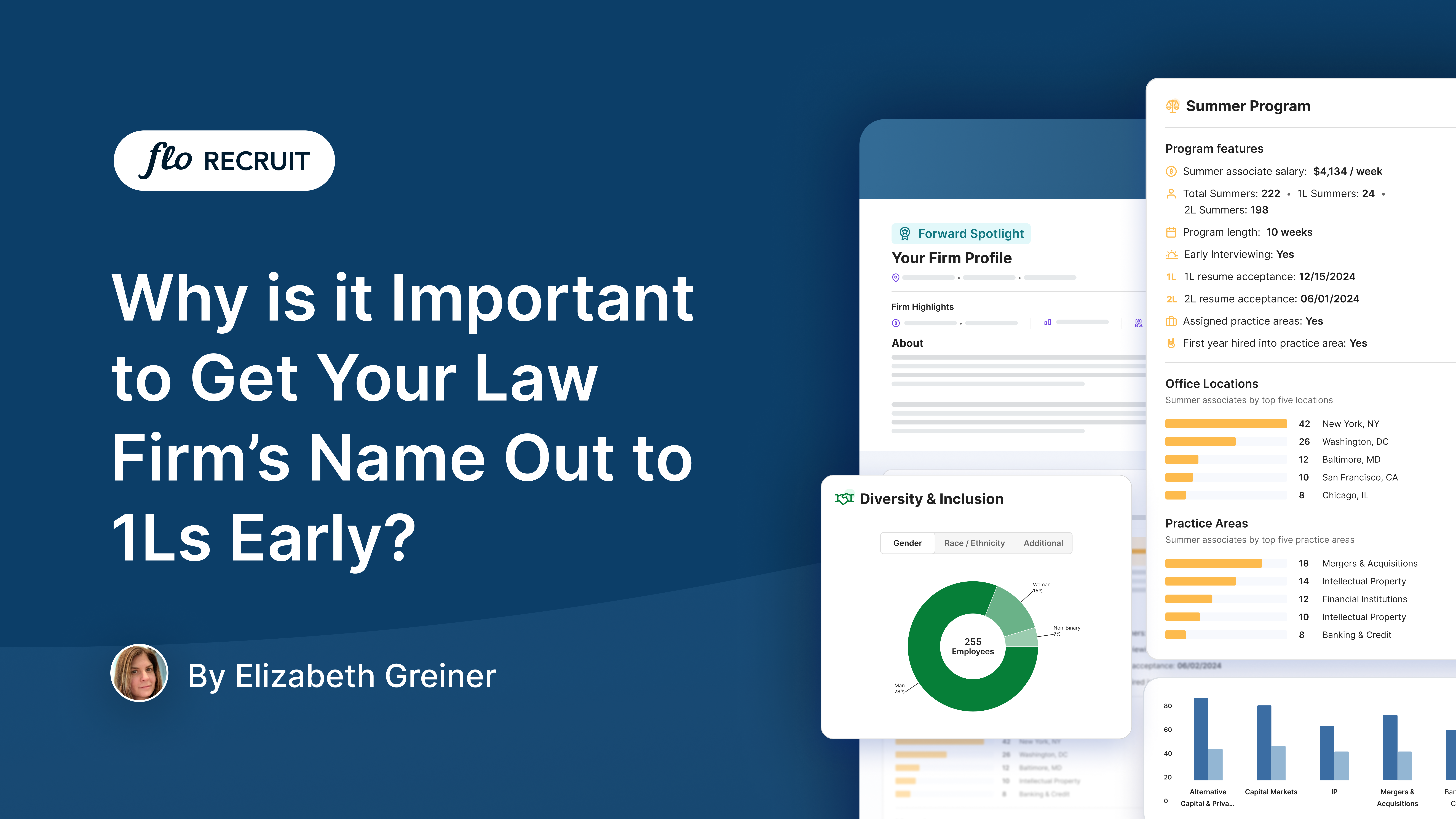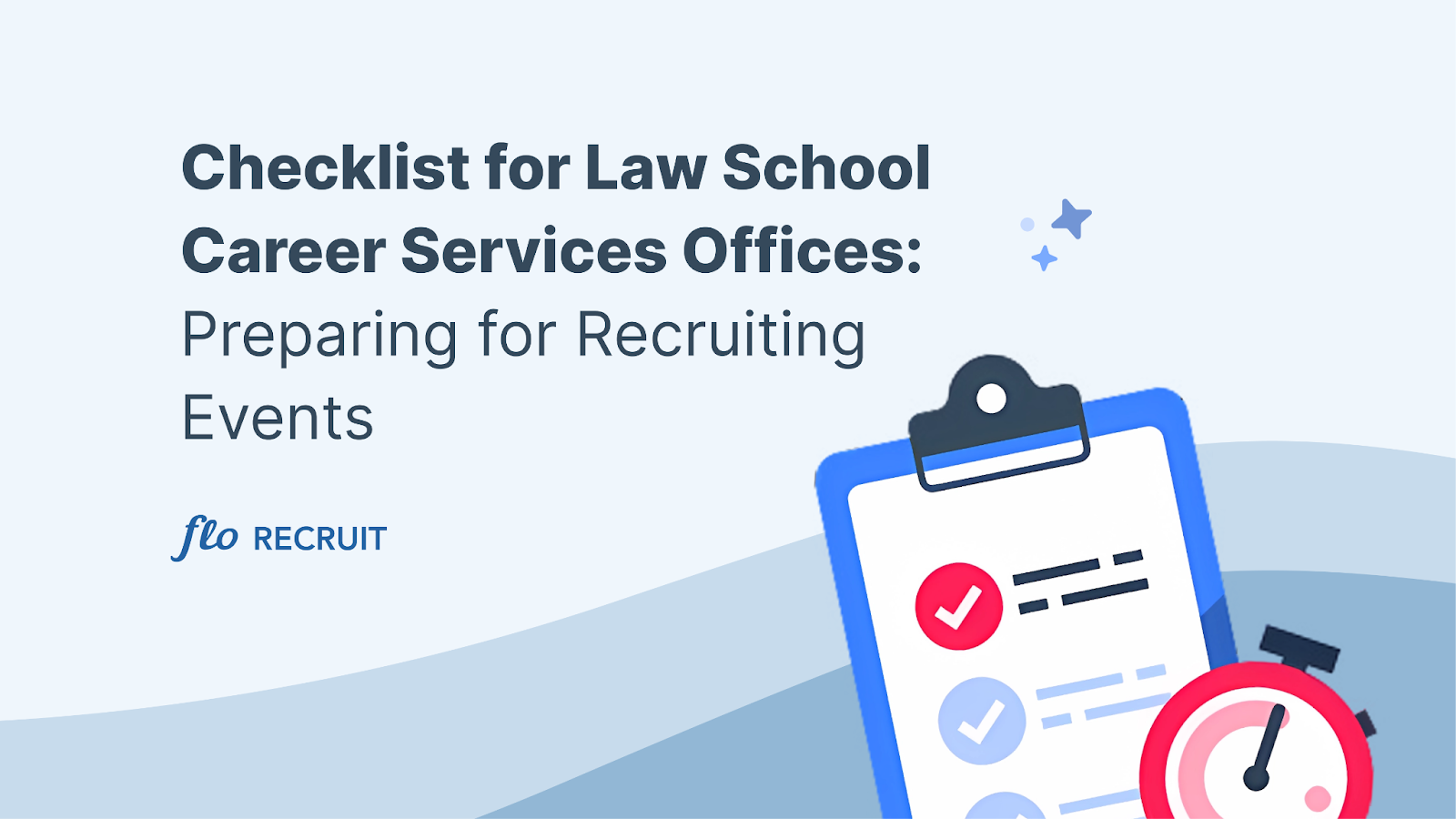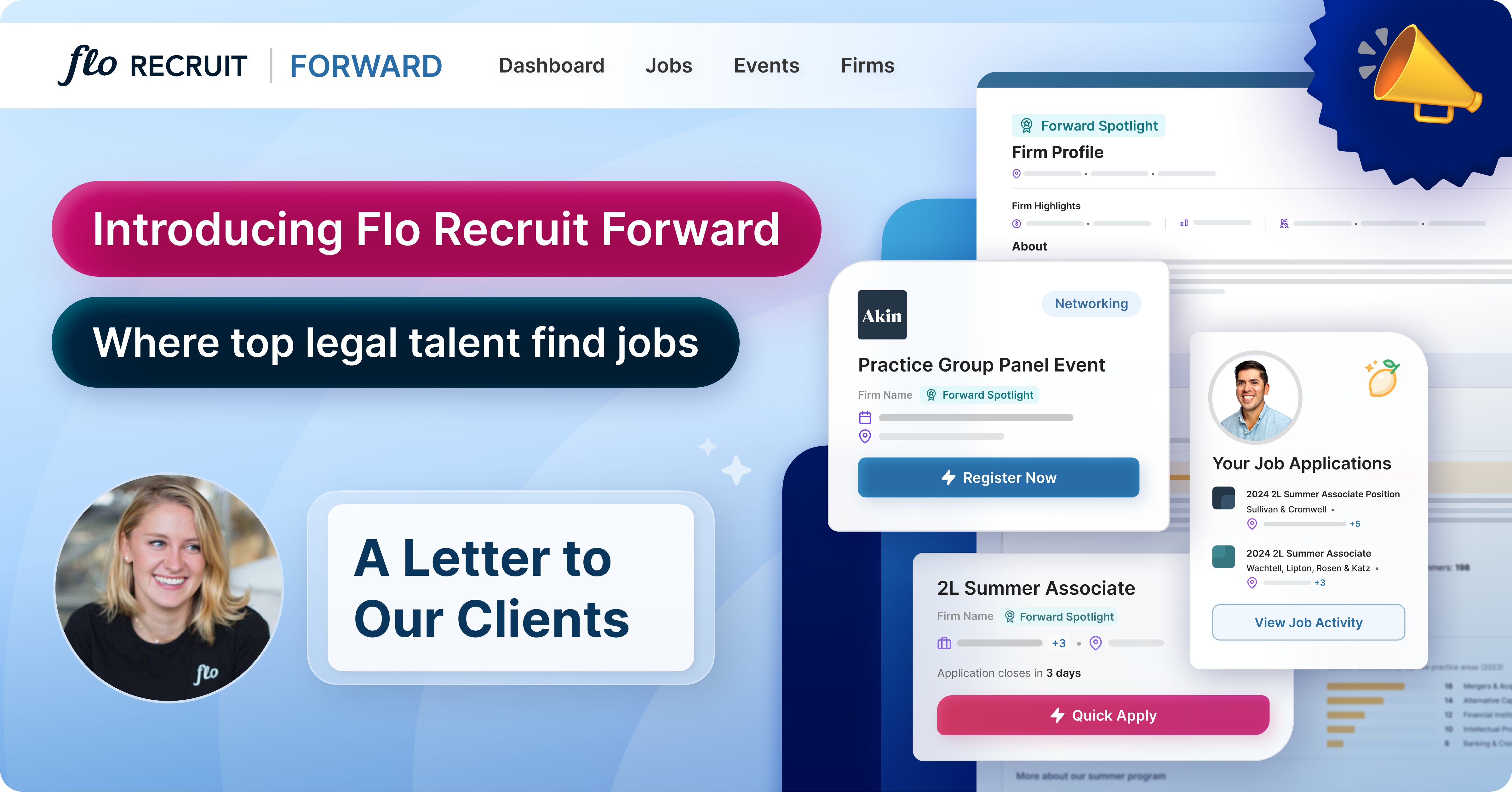Jumbo Offers in Context: A Trend to Watch
In the last few years, law student recruiting timelines in BigLaw have moved steadily earlier. The latest development in this evolving landscape is the emergence of jumbo offers that cover both a student’s 1L and 2L summers at the same time.
These double offers, while still relatively new, raise important questions for firms, students, and law schools alike.
What Are Jumbo Offers?
A jumbo offer is when a firm extends an offer to a law student that covers both the 1L and 2L summers simultaneously. The exact structure of these offers can vary:
- Some require a student to spend both summers entirely at the firm.
- Others allow splitting time with another employer, either during 1L or 2L summers.
- Certain offers may include conditions that students must meet in order to keep them open or earn certain stipends.
What unites them is the commitment involved, as the firm is effectively locking in talent for two summers, and by extension, often for full-time employment after graduation.
Why Now?
The timing of these offers is not happening in a vacuum. Over the past several recruiting cycles, timelines have crept earlier. Even last year, in the fall of 2024, 1L summer positions typically opened around November or December, with 2L hiring not kicking off until March 2025 or later. This year, we’re seeing 1L jobs opening as early as October, sometimes at the very same time that 2L opportunities are posted, and multiple 2L OCI programs announced for February as law schools anticipate firms recruiting 2Ls before spring.
The result is that students entering law school in the fall may find themselves interviewing for both their 1L and 2L summers in rapid succession. For firms, this creates a dilemma: they are often meeting the same students back-to-back, which drives the need for creative approaches like jumbo offers.
The Risks and Challenges
While jumbo offers may appear to solve a timing problem, they come with risks.
For firms:
- Limited information on candidates: Firms may be committing to two summers (and a likely full-time offer) based on, at most, a semester’s worth of grades and a handful of interviews.
- Uncertain hiring needs: In a fluctuating economy, forecasting staffing requirements multiple years in advance is a challenge. Committing early adds financial and operational pressure.
- Disrupted class balance: Firms traditionally hire more 2Ls than 1Ls, with 1Ls serving as a smaller, riskier cohort. Jumbo offers blur this distinction and may complicate planning.
For students:
- Reduced flexibility: Accepting a jumbo offer may limit opportunities to explore different practice areas, geographic markets, or firm cultures.
- Increased pressure: Students may feel compelled to make career-defining decisions before they’ve had a chance to fully settle into law school and improve GPA over time.
The Reality of the Current Market
Part of the rationale for jumbo offers is competition. In a market where application windows are opening earlier and earlier, firms may worry about losing out on top candidates to competitors willing to act quickly.
These types of changes are not entirely new. During the 2009 Recession, firms experimented with shifting hiring practices to adapt to uncertain economic conditions, including heavier reliance on 1L hiring, in order to stretch out incoming classes. Jumbo offers may represent a similar kind of adaptation: a way to keep pace with accelerated timelines and ensure access to talent despite market volatility.
How Firms Might Adapt
The rise of jumbo offers does not necessarily mean they will become standard across the industry. Recruiting strategies are often shaped by firm size, culture, and risk tolerance.
-
Large firms with robust summer classes may lean into jumbo offers as a way to secure a deep bench of associates early.
-
Smaller or more cautious firms may continue to prefer traditional 1L and 2L hiring, avoiding long-term commitments when information is limited
-
Firms across sizes may move away from the 1L summer model entirely, with the mindset, “Why recruit for and invest in this summer when students are already making decisions for their 2L summer?”
Another potential shift is logistical. Some firms may consolidate postings into a single “summer associate” application for current 1Ls, leaving room to decide later whether an offer covers one or both summers. While this might streamline recruiting, it raises questions about clarity, both for students navigating eligibility and for applicant tracking systems that must differentiate candidates.
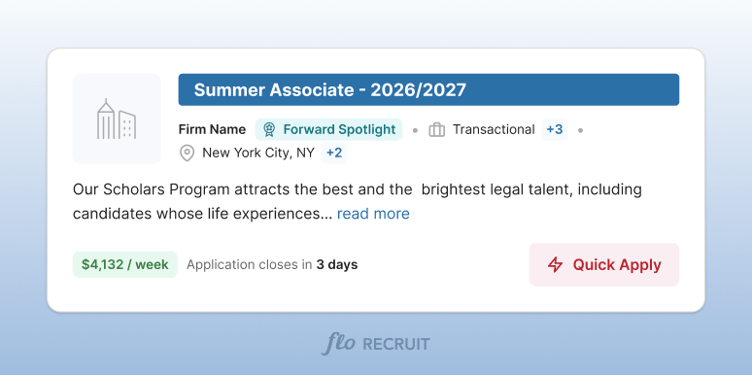
What Comes Next
It’s unlikely that jumbo offers will become a one-size-fits-all solution. Instead, they may become one of many tools in a firm’s recruiting strategy, particularly for BigLaw, used selectively in response to market conditions. For some firms, they may represent an appealing way to manage accelerated timelines. For others, the risks may outweigh the rewards.
What is certain is that recruiting timelines are continuing to evolve, and both firms and students will need to adapt. Just as shifts during past economic downturns reshaped hiring practices, the current moment may drive new norms that linger well beyond the immediate cycle.
Watching the Trend
At Flo, we’re observing the trends and facilitating conversations about what they might mean. Jumbo offers are one example of how firms are experimenting with solutions in a fast-moving market. Whether they remain a niche tool or grow into a broader practice remains to be seen.
As always, the legal recruiting landscape is dynamic, shaped by many different factors. Jumbo offers may not be the last creative solution we see, but they are a timely reminder that flexibility and foresight are critical in navigating this evolving process.
